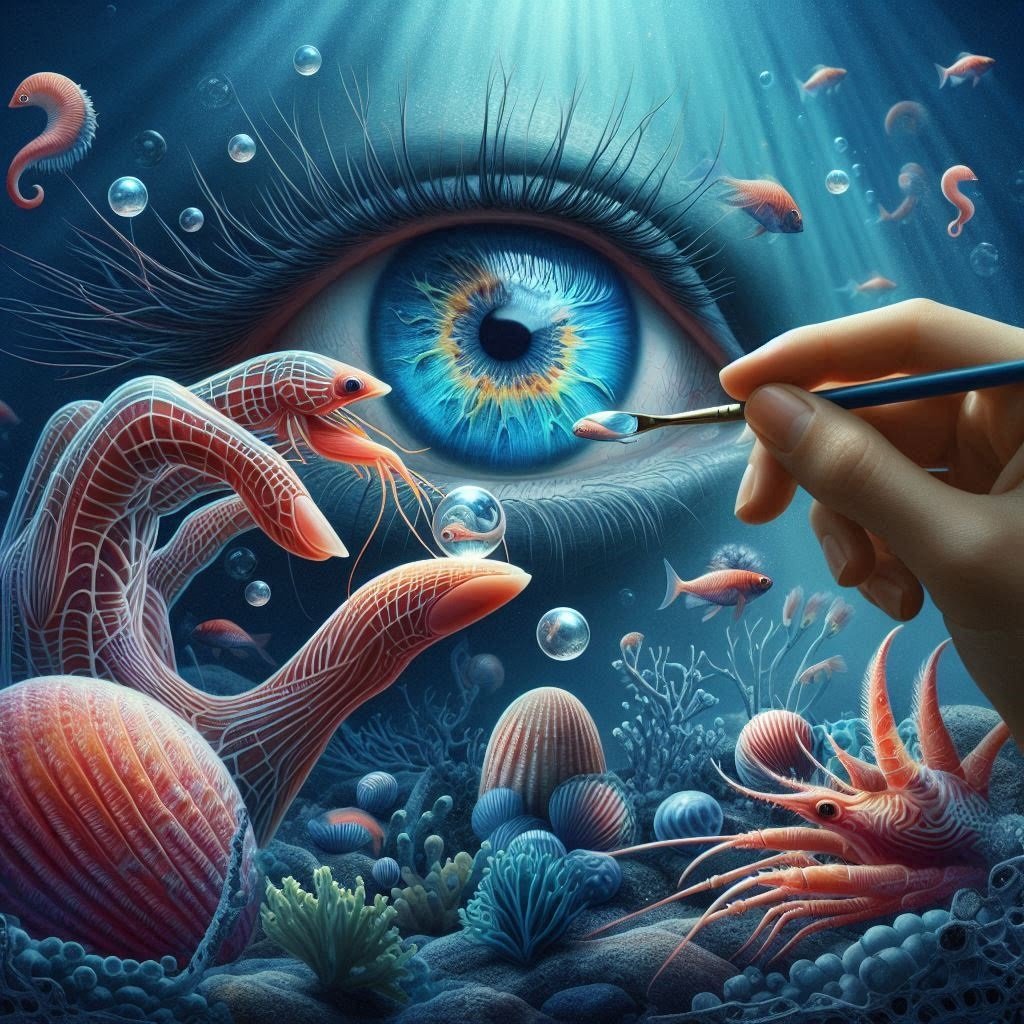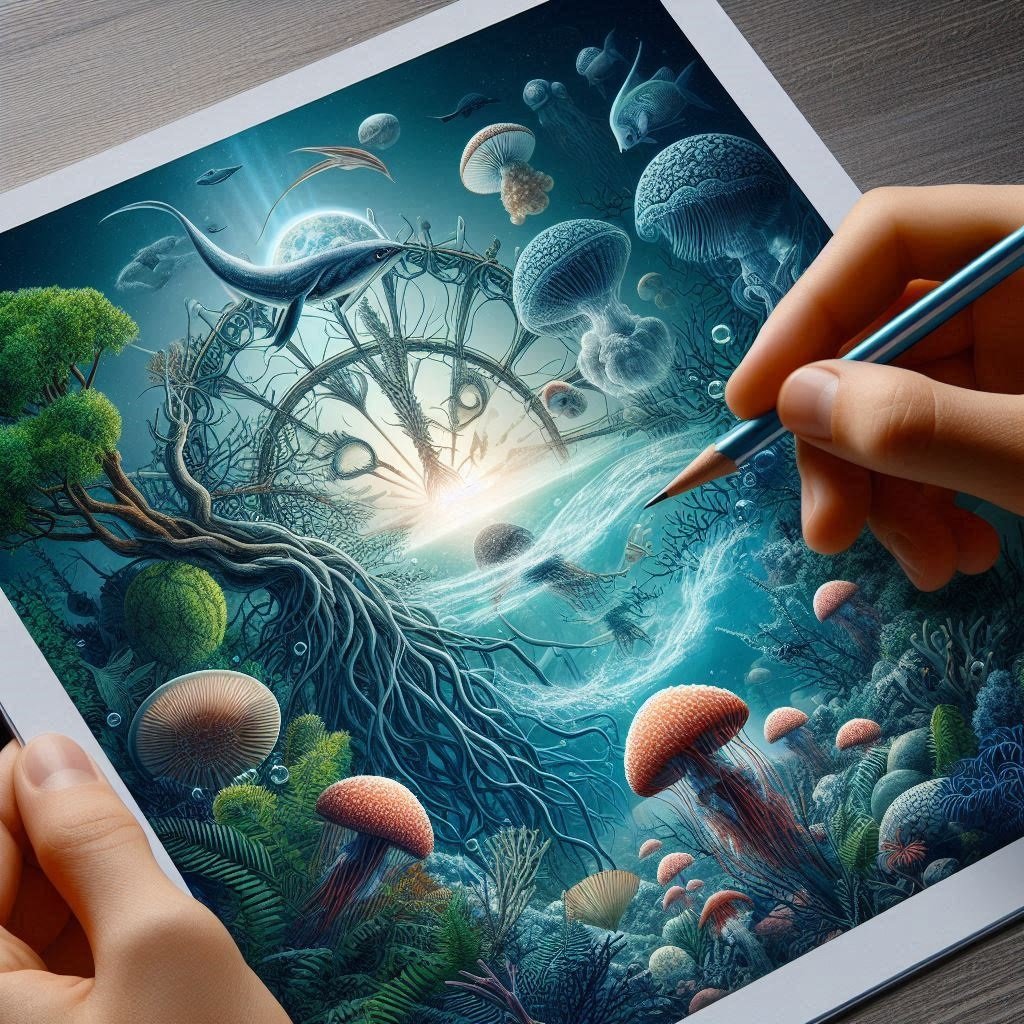Marine biology is a field of Science that unlocks the secrets of the vast oceans, teeming with life and wonder. From the smallest plankton to the largest whales, marine biology explores the diversity, complexity, and beauty of marine ecosystems. Let’s dive into the mysteries of the ocean realm, discover fascinating creatures, vibrant ecosystems, and the vital role they play in our planet’s health. We’ll also explore exciting career paths in marine biology and how you can make a difference for our oceans.
The Ocean: A World of Wonder
The ocean covers more than 70% of our planet’s surface and is home to a diverse array of life forms. It regulates our climate, provides food, and supports countless ecosystems. Yet, much of it remains unexplored. Marine biologists are like detectives, uncovering the secrets hidden beneath the waves.
Fascinating Marine Creatures
Marine life is incredibly diverse. Here are a few examples of the amazing creatures that call the ocean home:
1. Plankton: Tiny, drifting organisms that form the base of the marine food web. Phytoplankton, a type of plankton, photosynthesize like plants, producing oxygen and serving as food for many marine creatures.
2. Coral Reefs: Often referred to as the “rainforests of the sea,” coral reefs are bustling with life. They are built by tiny animals called polyps and provide habitat for countless species.
3. Sharks: These apex predators play a crucial role in maintaining the balance of marine ecosystems. Despite their fearsome reputation, many shark species are endangered.
4. Whales: The giants of the ocean, whales are intelligent and social creatures. They communicate with complex vocalizations and migrate vast distances across the seas.
5. Deep-Sea Creatures: In the dark depths of the ocean, bizarre and wonderful creatures thrive. From the bioluminescent anglerfish to the giant squid, the deep sea is full of surprises.

Vibrant Marine Ecosystems
Marine ecosystems are incredibly diverse and each plays a vital role in maintaining the health of our planet:
1. Coral Reefs: As mentioned earlier, coral reefs are rich in biodiversity. They provide food and shelter for a wide range of marine species and protect coastlines from erosion.
2. Mangroves: These coastal forests are vital for the health of marine environments. They act as nurseries for many fish species, filter pollutants, and protect shorelines from storm surges.
3. Seagrass Beds: Seagrass meadows are underwater nurseries for many marine animals. They also help to stabilize the seabed and improve water quality.
4. Open Ocean: The pelagic zone, or open ocean, is a vast and largely unexplored area. It is home to many migratory species, including whales, sharks, and sea turtles.
5. Polar Regions: The Arctic and Antarctic oceans are unique and fragile ecosystems. They support species that are specially adapted to extreme cold, such as polar bears, penguins, and seals.
The Vital Role of Marine Biology
Marine biology is not just about studying the ocean; it’s about understanding its importance and advocating for its protection. Here are some key reasons why marine biology is crucial:
1. Climate Regulation: The ocean plays a key role in regulating the Earth’s climate. It absorbs carbon dioxide and heat, helping to mitigate the effects of climate change.
2. Biodiversity: Marine ecosystems are incredibly diverse and are home to a vast array of species. Protecting this biodiversity is essential for the health of the planet.
3. Food Security: The ocean provides a significant source of food for billions of people worldwide. Sustainable fishing practices are essential to ensure that this resource is available for future generations.
4. Medical Discoveries: Marine organisms have contributed to important medical discoveries, including new antibiotics and cancer treatments. The potential for further discoveries is immense.
5. Economic Impact: The ocean economy is vast, encompassing fisheries, tourism, shipping, and renewable energy. Sustainable management of these resources is crucial for economic stability.
Career Paths in Marine Biology
If you’re passionate about the ocean and want to make a difference, a career in marine biology might be for you. Here are some exciting career paths to consider:
1. Marine Biologist: Conduct research on marine organisms and ecosystems. Work in the field, in laboratories, or on research vessels.
2. Marine Conservationist: Work to protect marine environments and species. This can involve advocacy, policy development, and hands-on conservation work.
3. Marine Ecologist: Study the relationships between marine organisms and their environment. This can include researching the impacts of human activity on marine ecosystems.
4. Marine Policy Expert: Develop and implement policies to protect marine environments. Work with governments, NGOs, and international organizations.
5. Marine Educator: Teach others about marine biology and the importance of ocean conservation. This can be in schools, aquariums, or through public outreach programs.
6. Marine Technician: Support marine research by maintaining equipment, collecting data, and assisting with fieldwork.
7. Aquarist: Care for marine animals in aquariums. Educate the public about marine life and conservation efforts.
8. Oceanographer: Study the physical and chemical properties of the ocean. This includes researching ocean currents, waves, and the impact of climate change on marine environments.

How You Can Make a Difference
You don’t have to be a marine biologist to help protect our oceans. Here are some simple ways you can make a difference:
1. Reduce Plastic Use: Plastic pollution is a major threat to marine life. Reduce your use of single-use plastics and participate in beach cleanups.
2. Support Sustainable Seafood: Choose seafood that is sustainably sourced. Look for certifications like the Marine Stewardship Council (MSC) label.
3. Conserve Water: Reducing your water use can help decrease the amount of runoff and wastewater that ends up in the ocean.
4. Be an Advocate: Raise awareness about marine conservation issues. Support policies and organizations that protect the ocean.
5. Reduce Carbon Footprint: Climate change impacts marine ecosystems. Reduce your carbon footprint by using energy-efficient appliances, driving less, and supporting renewable energy.
6. Educate Others: Share your knowledge about marine conservation with friends and family. The more people who are aware of the issues, the more support there will be for solutions.
Conclusion
Marine biology offers a glimpse into a world that is as mysterious as it is vital. The ocean is not only a source of wonder but also a crucial component of our planet’s health. By understanding and protecting marine ecosystems, we can ensure that they continue to thrive for future generations. Whether you pursue a career in marine biology or take small steps to protect the ocean in your daily life, you can make a difference. Dive into the world of marine biology and discover the many ways you can contribute to the health and beauty of our oceans.
